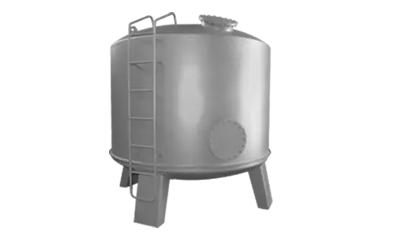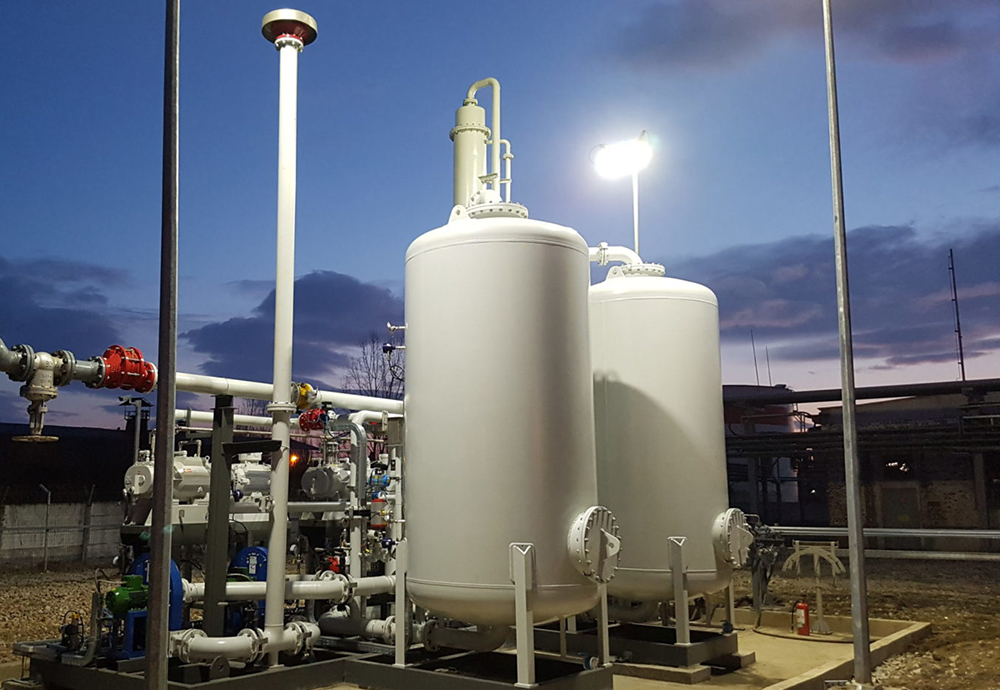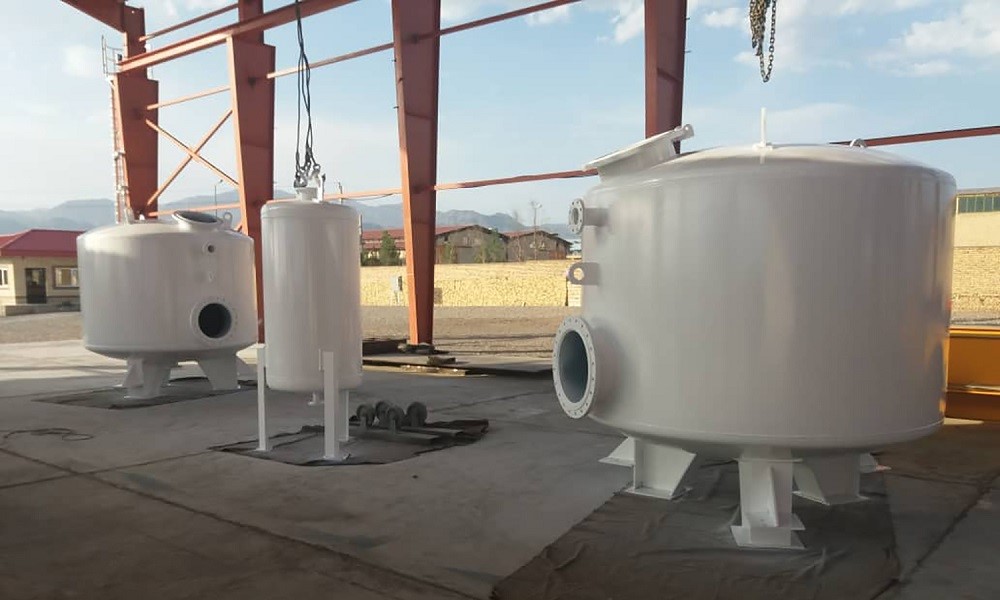Filtration plays a critical role in the oil and gas industry. Filter is essential to ensure the purity of fluids and gases and to maintain equipment efficiency. Additionally, filtration helps reduce environmental hazards and safeguard worker health. Below, we introduce various types of petroleum filters.

Bag Filters: Bag filters are used to separate solid particles from liquids and gases. They are employed in different stages of oil refining and the production of petroleum products.
Multi-Bag Housings: These housings contain multiple bag filters, offering a high capacity for retaining contaminants and are suitable for high-flow applications.
Cartridge Filters: Cartridge filters are used to remove suspended particles from various fluids. They are applicable in the refining of crude oil, natural gas, and other petroleum products.
Multi-Cartridge Housings: These housings can accommodate several cartridge filters and are suitable for filtering various liquids such as water, oil, and fuel. Due to the diversity in construction materials and micron ratings, these filters have a wide range of applications.
Depth Cartridges: Depth cartridges feature progressively dense media that captures contaminants throughout the entire depth of the filter. These filters are highly effective for removing particles and sediments.
String Wound Cartridges: String wound cartridges are constructed by winding yarn or fibers around a solid core, providing a high capacity for retaining contaminants. They are used for filtering viscous liquids and process waters.
Pleated Cartridges: Pleated cartridges have a large surface area that allows for a high dirt-holding capacity and long service life. They are used in various applications, including oil, gas, and water filtration.
Filter Bags: Filter bags are effective for removing contaminants from liquids and are suitable for high-flow and temporary processes due to their ease of maintenance and replacement.
Pipeline Strainers: Installed inside pipelines, these strainers remove solid particles and debris. Pipeline strainers serve as a pre-filtration solution to protect downstream equipment such as pumps and compressors.
Oil/Hydraulic Filters: Designed specifically for oil and hydraulic systems, these filters remove contaminants to ensure cleanliness and extend the life of critical components.
Membrane Filters: Membrane filters feature thin, semi-permeable membranes that block particles larger than the pore size and allow smaller particles to pass through. Membrane filtration is crucial for precise separation.
Adsorption Filters: These filters use adsorbent materials like activated carbon to capture and retain contaminants. They are effective in removing dissolved impurities, organic compounds, and odors.
Electrostatic Filters: Electrostatic filters utilize electrostatic attraction between charged particles and a collection surface, typically used for removing fine particles from gases.
Single Bag Filters: Single bag filters are suited for smaller applications and collecting solid contaminants, offering a cost-effective solution.
Self-Cleaning Filters: Self-cleaning filters are ideal for continuous applications where particle removal is needed without stopping the process. These filters are used in refineries and in oil and gas pipelines.
Centrifugal Filters: Centrifugal filters use centrifugal force to separate solid particles from liquids and gases. They are utilized in refineries and oil and gas production facilities.
Micron Filters: Micron filters are designed to remove very fine particles (on the micron scale) from hydrocarbon streams. They are employed in refineries and petroleum product facilities.
Pleated Filters: Pleated filters are a type of industrial filter designed with a pleated structure to provide a larger filtration surface area. Compared to flat filters or simpler structures, pleated filters offer a greater filter media surface area within a compact volume. In other words, the pleated structure allows for more filter media to be accommodated in the same physical space.
Gas-Liquid Separators: These filters are used to separate liquid droplets from gas streams. They are used in refineries and natural gas production facilities.
Depth Filters: Depth filters use compressed felts or synthetic fibers to separate solid particles from liquids and gases. They are used in various stages of oil refining and petroleum product production.
Oil-Water Separators: Oil-water separators are used to remove water from oil streams. They are used in crude oil production and refining processes.
Coalescer Filters: Coalescer filters are designed to separate immiscible liquids from each other, particularly to remove water from hydrocarbons (such as crude oil, diesel, and gas). These filters use the coalescence property to gather and separate small liquid droplets.
Membrane Filters: Membrane filters are advanced filters that use semi-permeable membranes to separate very fine particles and molecules from fluids. They can even filter particles as small as viruses and bacteria.
Portable filtration units are suitable for facilitating filtration in various locations and are used in intermediate facilities.
The materials used in filter construction vary depending on the application and the type of particles to be removed. These materials include paper, fabric, metal, activated carbon, ceramic, and synthetic fibers.

Filtration is crucial in various sectors including oil refineries, natural gas processing units, petrochemical plants, and in the production and distribution of natural gas. These processes involve removing impurities from crude oil, gas streams, and process fluids. Filtration plays a key role in ensuring fluid purity, enhancing equipment efficiency, and improving process safety. It is essential throughout all stages of oil and gas production, transportation, and refining. Below are some primary filtration applications in this industry:
Upstream activities involve the exploration and extraction of oil and gas from underground reservoirs. In these stages, filtration is crucial for removing solid particles and contaminants from drilling and production fluids. Strainers and various filters prevent suspended particles from entering sensitive equipment such as pumps and compressors.
Midstream activities involve transporting oil and gas from wells to refineries and distribution centers. Filtration in this segment helps remove water, solid particles, and other contaminants from crude oil and natural gas. Coalescer filters and multi-cartridge filters are widely used in these stages to ensure that transported fluids are clean and free from harmful contaminants.
Downstream activities involve refining crude oil and natural gas into final products such as gasoline, diesel, and petrochemical products. In these stages, filtration helps remove impurities and improve product quality. Pleated and cartridge filters are commonly used to ensure that final products are pure and of high quality.
Increased filter lifespan helps protect sensitive equipment such as turbines, pumps, and compressors from solid particles and contaminants. By removing impurities, filtration prevents premature equipment failure and extends its service life. This results in reduced maintenance costs and enhanced overall operational efficiency.
Removing contaminants from fluids and gases not only improves the quality of final products but also reduces environmental and safety risks associated with pollutant presence. Adsorption and electrostatic filters are particularly effective in removing organic compounds and harmful gases, reducing emissions, and enhancing workplace safety.
Filtration also plays a crucial role in specific applications such as natural gas sweetening, water-oil separation, and hydrogen sulfide removal from gases. In these applications, specialized filters like coalescers and membrane filters are essential for achieving efficient and safe refining and production processes.

Conclusion
Filtration is vital in the oil and gas industry for maintaining equipment efficiency and ensuring the quality of final products. Given the variety of filters available and their different applications, choosing the appropriate filter for each specific process is of great importance.
Petro structure Operator of all types of filters, distillation towers, vacuum towers, vessels, flares, furnaces, etc. is. This complex has the possibility of making filters by using the required experts and equipment. Contact our experts for expert advice.
References